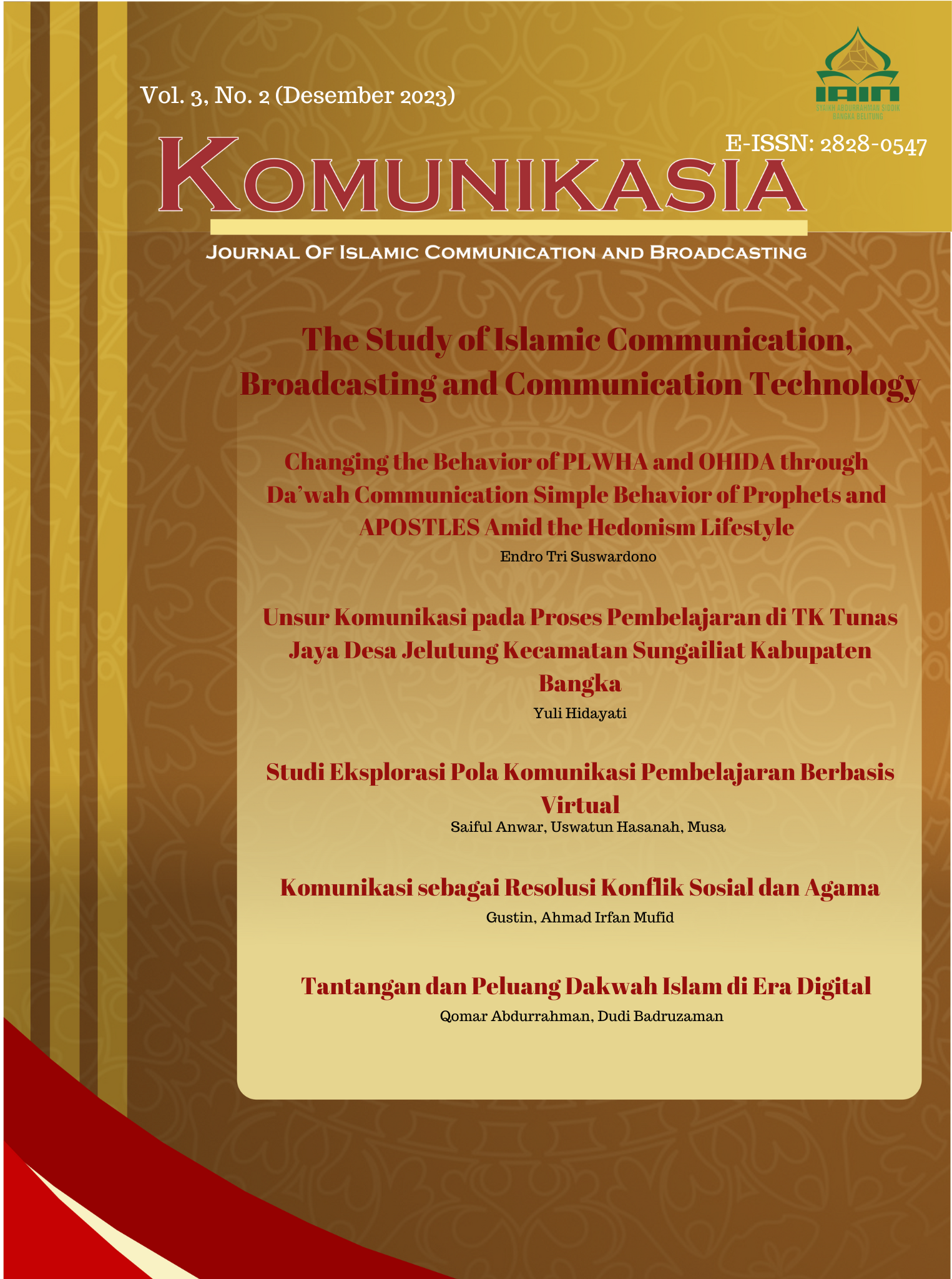KOMUNIKASI SEBAGAI RESOLUSI KONFLIK SOSIAL DAN AGAMA
Tudingan terhadap Agama sebagai Penyebab Konflik Sosial
Abstract
The emergence of social conflicts and violence rooted in religion as a justification has been a recurring issue throughout the history of violence up to the present day. Of course, social conflicts followed by religious-themed violence do not occur in Indonesia without reason, irrespective of several socio-political phenomena they may trigger. The methodology employed in this research is qualitative. This study utilizes a literature research approach, which addresses conceptual-theoretical issues related to both prominent thinkers and specific theoretical concepts. Regarding communication as a means of resolving social and religious conflicts, it can be concluded that communication is the appropriate way to address conflicts, be they social, religious, or otherwise. Essentially, conflicts would not persist if there was a willingness to communicate, whether on a personal or social level. This implies that there is no such thing as an ongoing conflict, but rather a lack of desire on the part of the involved parties to engage in effective communication, both on a personal and communal level. Furthermore, religion is a domain of virtue, love, and a commitment to goodness, which should not be a cause of conflict but, conversely, should promote a peaceful and harmonious society where mutual respect prevails.
Downloads
Copyright Notice
Komunikasia: Journal of Islamic Broadcasting and Communication is under the Creative Commons Attribution 4.0 International (CC-BY 4.0) License, according to which:
1) Authors retain copyright and grant the journal the right to first publication, with the work simultaneously licensed under the Creative Commons Attribution (CC-BY 4.0) that allows the sharing of articles published with the acknowledgment of authorship and the initial publication in this journal.
2) The authors are authorized to make additional contracts separately for distribution of the version of the work published in this journal (for example, publication in an institutional repository or as a chapter of the book), as long as there is recognition of authorship and initial publication in this journal.
3) Authors are authorized and encouraged to publish and distribute their work online (for example, in institutional repositories or on their personal pages) at any time before or during the editorial process, as it increases the impact and reference of the published work.



















